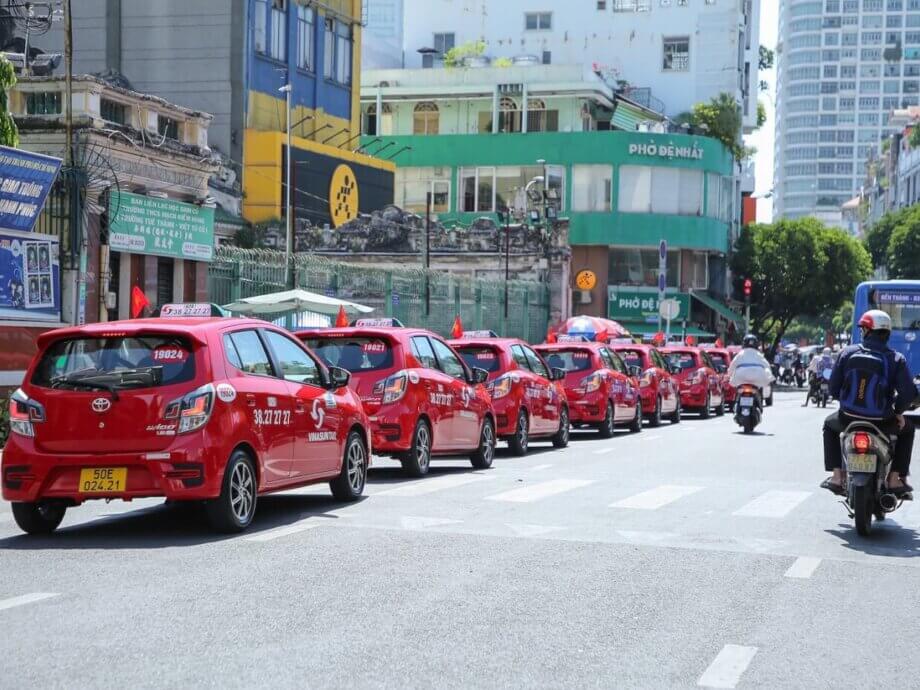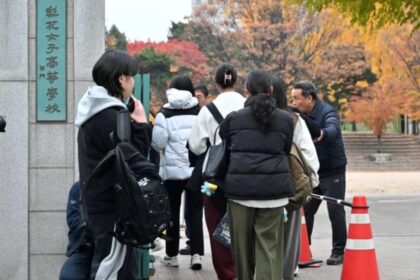The Incident: Two Ethnic Minority Passengers Charged 4.2 Million VND for a Short Taxi Ride
In mid-June 2024, a shocking case of taxi overcharging at My Dinh Bus Station in Hanoi captured national attention. Two ethnic minority passengers from Lao Cai province, Ms. Cu Mua and her nephew Giang Ho, were charged an exorbitant 4.2 million VND (approximately $165) for a taxi ride of just over 20 kilometers. The incident, which also involved a 700,000 VND motorbike taxi fare for a short transfer, has sparked widespread outrage and prompted a deeper look into the persistent problem of passenger exploitation at major transport hubs.
- The Incident: Two Ethnic Minority Passengers Charged 4.2 Million VND for a Short Taxi Ride
- Victims’ Plight: Financial Hardship and Emotional Trauma
- The Perpetrators: Motives and Confessions
- Systemic Problem: Not the First, Nor the Last
- Social Media and the Power of Community Action
- Broader Implications: Passenger Safety and Social Trust
- In Summary
The victims, unfamiliar with Hanoi and its transportation system, were returning home after a hospital visit for Ms. Mua’s seriously ill child. Their journey, already fraught with emotional and financial stress, became a nightmare when they encountered a group of opportunistic drivers who took advantage of their vulnerability.
How the Overcharging Unfolded
According to police investigations and multiple media reports, the sequence began when Ms. Mua and Mr. Ho arrived at My Dinh Bus Station, intending to catch a coach back to Lao Cai. At the station entrance, they were approached by a man claiming to be a bus company employee, who directed them to two motorbike taxi drivers. These drivers offered to help them catch up with a departing coach, charging 700,000 VND for a short ride and then transferring them to a taxi driven by Thai Ngoc Anh.
Once in the taxi, the passengers were told that the coach could not be caught and were offered a direct ride to Lao Cai for a much higher price. When they refused, the driver demanded 4.2 million VND for the short trip from My Dinh to the entrance of the Noi Bai – Lao Cai Expressway, threatening to take them back to the bus station if they did not pay. Fearing for their safety and desperate to return home, the victims complied, borrowing money from relatives to pay the fare.
Victims’ Plight: Financial Hardship and Emotional Trauma
The impact of the incident on the victims was profound. Ms. Mua’s family, already classified as poor in their home commune of Cao Son, Muong Khuong district, was struggling with medical bills for her daughter’s serious illness. The additional loss of nearly 5 million VND (including the motorbike and taxi fares) was a devastating blow. In interviews, Ms. Mua and Mr. Ho described their fear and helplessness during the ordeal, with Ms. Mua breaking down in tears when recounting the experience.
After being left on the roadside, the two walked under the scorching sun, carrying heavy bags, until they were noticed by a kind-hearted local, Mr. Xuan Truong. He offered them a ride to a toll station, where they could catch a coach home, and later helped them report the incident to the police. Mr. Truong’s actions, and his decision to share the story on social media, played a crucial role in bringing the case to public attention and prompting official action.
Refusal of Charity: Dignity Amid Hardship
In the aftermath, many individuals and organizations offered financial support to the victims. However, Ms. Mua’s family declined these offers, expressing gratitude but insisting on repaying their debts through their own efforts. “I am still young and healthy, I can work to pay off the debt. Please give the support to others in greater need,” Ms. Mua’s husband told reporters. This response has been widely praised as a testament to the family’s dignity and resilience.
The Perpetrators: Motives and Confessions
Thai Ngoc Anh, the taxi driver at the center of the scandal, was detained by Hanoi police for investigation on charges of extortion. At the police station, Anh admitted to overcharging the passengers, stating, “I saw they were easy targets, so I charged a high price. I only raised my voice, I didn’t threaten them physically. I told them if they didn’t pay, I would take them back to My Dinh.” He also cited personal financial difficulties and debts as motives for his actions, expressing regret and a desire to return the money after the incident went viral online.
The motorbike taxi drivers involved also confessed to overcharging, with one stating, “I admit the price was too high. I saw they were ethnic minorities and didn’t know the city, so I took advantage.” Police are continuing to investigate the roles of all individuals involved, including those who facilitated the initial contact at the bus station.
Systemic Problem: Not the First, Nor the Last
Authorities and transport experts have emphasized that this is not an isolated incident. Overcharging, harassment, and scams targeting passengers—especially those from rural or ethnic minority backgrounds—are recurring problems at major bus stations in Hanoi and other cities. According to police and bus station management, such schemes often involve:
- Approaching new arrivals with offers of “help” or “cheap rides.”
- Failing to disclose prices upfront, then demanding exorbitant sums after the ride.
- Impersonating official transport staff or using fake branding to appear legitimate.
- Intimidating or psychologically pressuring passengers into paying.
These tactics are particularly effective against people unfamiliar with urban environments, language, or modern ride-hailing technology. Victims often feel isolated, confused, and afraid to resist, especially when far from home or in vulnerable situations.
Official Response and Legal Implications
Following the public outcry, Hanoi police quickly detained the main suspect and launched a broader investigation into the network of drivers and intermediaries operating around My Dinh Bus Station. According to Lieutenant Colonel Do Huy Cuong of the Hanoi Police Investigation Department, “Any act of threatening or using psychological pressure to appropriate property constitutes extortion under Article 170 of the Penal Code, regardless of the amount involved.”
Authorities have pledged to increase patrols, strengthen enforcement, and coordinate with bus station management to prevent similar incidents. Public announcements and educational campaigns are being implemented to raise awareness among passengers, especially those from remote areas.
Social Media and the Power of Community Action
The rapid spread of the story on social media was instrumental in prompting official action. The video and testimony shared by Mr. Xuan Truong, the Good Samaritan who helped the victims, quickly went viral, drawing widespread condemnation and calls for justice. Many netizens expressed outrage at the exploitation of vulnerable people and demanded stricter regulation of taxi and motorbike services at transport hubs.
Mr. Truong explained his motivation: “If I had been afraid, I wouldn’t have helped. When you see someone in trouble, you can’t just turn away.” His actions have been widely lauded as an example of civic responsibility and compassion.
Broader Implications: Passenger Safety and Social Trust
The incident has reignited debate about passenger safety, consumer rights, and the responsibilities of transport authorities. Experts warn that unchecked exploitation at bus stations not only harms individuals but also damages the reputation of public transport and erodes social trust. The case highlights the need for:
- Stricter enforcement against illegal and unlicensed taxi operations (“taxi dù”).
- Clearer information and support for passengers, especially those from rural or ethnic minority backgrounds.
- Wider adoption of reputable ride-hailing apps and official taxi services, which offer transparent pricing and traceability.
- Community vigilance and willingness to intervene or report suspicious behavior.
How to Recognize and Avoid Taxi Scams
Transport authorities and consumer advocates offer several practical tips for avoiding taxi scams:
- Use only official taxi companies or ride-hailing apps with clear branding, business licenses, and metered fares.
- Check that the vehicle’s license plate matches the booking information.
- Ask for the fare estimate before getting in, and insist on using the meter for traditional taxis.
- Be wary of unsolicited offers or aggressive touts at bus stations, airports, or tourist sites.
- If you feel threatened or overcharged, contact local police or station security immediately.
Passengers are also encouraged to use navigation apps to check routes and distances, and to avoid traveling alone late at night or in unfamiliar areas when possible.
In Summary
- Two ethnic minority passengers were charged 4.2 million VND for a short taxi ride in Hanoi, sparking national outrage.
- The incident involved a network of drivers exploiting vulnerable passengers at My Dinh Bus Station.
- Victims suffered financial and emotional hardship but refused charity, demonstrating dignity and resilience.
- The main perpetrator confessed, citing personal financial difficulties and targeting “easy” victims.
- Authorities have launched a crackdown on illegal taxi operations and pledged to improve passenger safety.
- The case highlights systemic problems of exploitation at transport hubs and the need for greater awareness, enforcement, and community action.
- Passengers are advised to use reputable transport services, verify fares, and report suspicious behavior to authorities.












